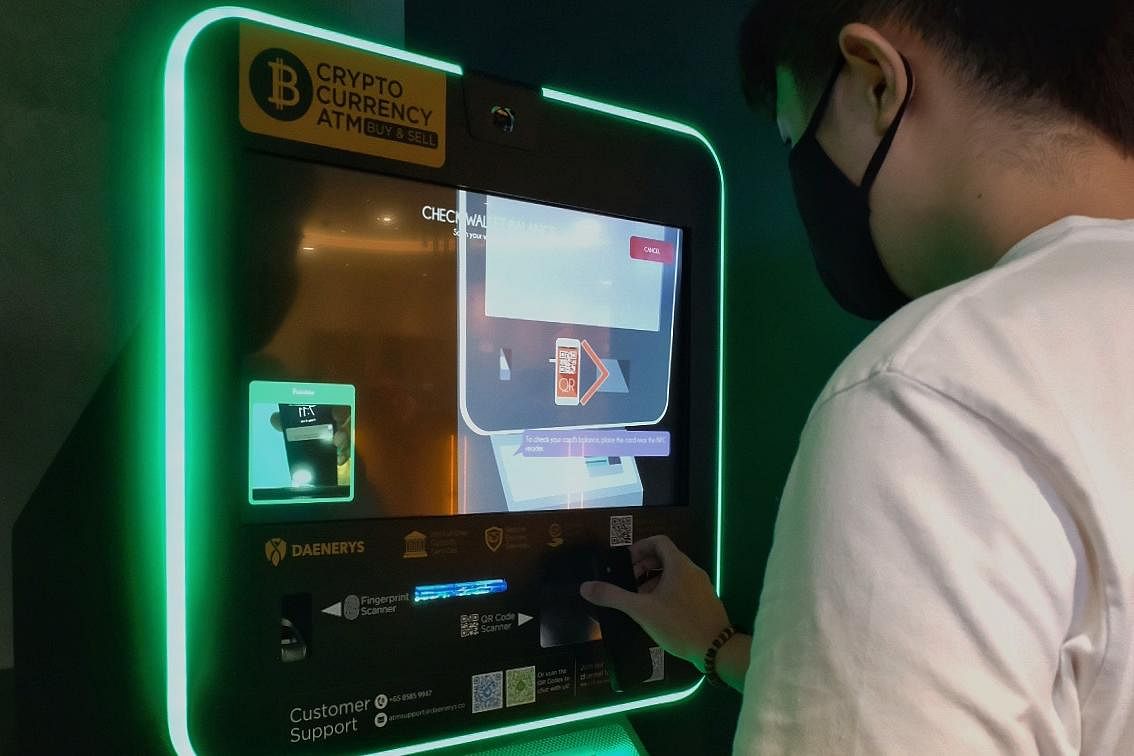Both public, private clean energy financing needed to drive global transition: Tharman
Sign up now: Get ST's newsletters delivered to your inbox

Senior Minister and Coordinating Minister for Social Policies Tharman Shanmugaratnam speaking during a fireside chat at the Asia Financial Markets Forum 2021, on Oct 27, 2021.
PHOTO: BLOOMBERG
SINGAPORE - Resolving the challenges in financing the world's transition towards cleaner energy resources necessitates public and private sector collaboration, said Senior Minister and Coordinating Minister for Social Policies Tharman Shanmugaratnam on Wednesday (Oct 27).
This is due to the sheer scale of the investment needed to refit existing infrastructures in both advanced and developing economies, and to put in place new infrastructure for renewable energy.
This is something the public sector cannot accomplish alone, he said.
The private sector, too, cannot do it alone and does not have enough incentive to do so, unless there are astronomically high carbon taxes, Mr Tharman added.
He stressed that the best way to move forward is to use public funds to mitigate risk for private investments, rather than use public money to make the full investment in the transition.
Mr Tharman was speaking during a fireside chat at the Asia Financial Markets Forum 2021 Singapore. The two-day forum is being held in a hybrid format, and is organised by the Financial Markets Association of Singapore and co-hosted by Bloomberg.
The session was moderated by Bloomberg News chief international correspondent for South-east Asia Haslinda Amin.
During the session, the minister outlined how the pace of innovation in renewable energy, particularly renewable energy storage, has not kept pace with the increased demand for such cleaner energy resources.
But while investment in fossil fuels as an energy source is already diminishing, the supply of renewables is not increasing at the rate necessary to substitute fossil fuels.
"So what we may very well see is that the rise in the costs of dirty energy as well as the rise in the costs of clean energy at the same time, and that really is the medium- to long-term challenge - that of an escalation of inflation internationally that comes out of the fact that we are in this long transition towards a cleaner world," Mr Tharman noted.
"If we do not act to step up the pace of investment in cleaner energies, the risk is of escalating inflation, and the broad middle class and lower-income group in a whole range of countries resisting the move towards a cleaner economy," he said, underscoring that it requires public and private funding to spur innovation to lower the cost and increase the convenience of cleaner energy sources.
"If you don't do that, we face a serious political challenge over the next decade."
Cryptocurrencies as legal tender?

Asked about the future of cryptocurrencies, Mr Tharman pointed to how the fintech industry has provided inclusion to underserved markets, such as small and medium-sized enterprises that find it difficult to get unsecured financing.
At the same time, fintech has provided a "useful jolt" to the payments scene, he said. Mr Tharman also noted how it has forced the traditional financial system to improve the cost, reliability and speed of services.
"I think the future is going to be one of very cheap, very quick payments, both domestically and internationally for retail and wholesale customers," he said, adding that he also envisions that regulated stablecoins - digital currencies pegged to a stable asset such as fiat currency - to have a useful role in the future.
Asked about the future of cryptocurrency as legal tender, Mr Tharman said: "It's very hard. I don't want to mention specific names, but if you have an instrument that is volatile in pricing, it's never going to become money.
"It's going to be a speculative asset, for both the wise and the foolish, and it's never going to become money."
He added that most of the innovation in the fintech space involves digital wallets and payments, which are ultimately backed by sovereign money.
His main concerns about cryptocurrencies, Mr Tharman said, centre on illicit finance and people getting burned in the speculation game.
Central banks: Accept uncertainty, anticipating errors
Speaking about inflation trends, Mr Tharman pointed out how shocks will happen and how situations such as the current surge in energy prices were not foreseen by central bank models.
"We just have to accept that there is uncertainty. When there's uncertainty, central banks are best placed not betting at one end of the cone (of possibilities). Central banks are best placed starting to anticipate the possibility that we might be wrong," he said.
Asked about the risks to economic growth, Mr Tharman acknowledged that there is a strong possibility of slower growth internationally - be it in China, advanced economies or the developing world.
"Slow growth, high inflation - it's a very real prospect."
Asked about the global economy, he said that the Delta variant may not be the last highly transmissible variant which the world sees in the ongoing pandemic.
"We have to be always alert to what's happening - follow the data, follow the science, and never be too complacent," Mr Tharman said, cautioning against an "ultra simplistic strategy", be it Covid-zero or letting everything loose.
"Take care, (and) ease ourselves into a situation where we live with Covid-19, which is what Singapore is trying to do," he noted, adding that the Republic is getting there, with its progressive opening of borders and its vaccinated travel lanes.


